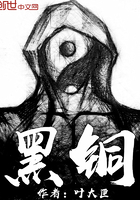She charmed him by numerous attentions; nowit was some new way of arranging paper sconces for the candles, a flounce thatshe altered on her gown, or an extraordinary name for some very simple dishthat the servant had spoilt, but that Charles swallowed with pleasure to thelast mouthful. At Rouen she saw some ladies who wore a bunch of charms on thewatch-chains; she bought some charms. She wanted for her mantelpiece two largeblue glass vases, and some time after an ivory nécessairewith a silver-gilt thimble. The less Charles understood these refinements themore they seduced him. They added something to the pleasure of the senses andto the comfort of his fireside. It was like a golden dust sanding all along thenarrow path of his life.
He was well, looked well; his reputation wasfirmly established. The country-folk loved him because he was not proud. Hepetted the children, never went to the public house, and, moreover, his moralsinspired confidence. He was specially successful with catarrhs and chestcomplaints. Being much afraid of killing his patients, Charles, in fact onlyprescribed sedatives, from time to time and emetic, a footbath, or leeches. Itwas not that he was afraid of surgery; he bled people copiously like horses,and for the taking out of teeth he had the “devil's own wrist.”
Finally, to keep up with the times, he tookin La Ruche Médicale, a new journal whose prospectushad been sent him. He read it a little after dinner, but in about five minutesthe warmth of the room added to the effect of his dinner sent him to sleep; andhe sat there, his chin on his two hands and his hair spreading like a mane tothe foot of the lamp. Emma looked at him and shrugged her shoulders. Why, atleast, was not her husband one of those men of taciturn passions who work attheir books all night, and at last, when about sixty, the age of rheumatismsets in, wear a string of orders on their ill-fitting black coat? She couldhave wished this name of Bovary, which was hers, had been illustrious, to seeit displayed at the booksellers', repeated in thenewspapers, known to all France. But Charles had no ambition. An Yvetot doctorwhom he had lately met in consultation had somewhal humiliated him at the verybedside of the patient, before the assembled relatives. When, in the evening,Charles told her this anecdote, Emma inveighed loudly against his colleague.Charles was much touched. He kissed her forehead with a tear in his eyes. Butshe was angered with shame; she felt a wild desire to strike him; she went toopen the window in the passage and breathed in the flesh air to calm herself.
“What a man! What a man!” she said in a low voice, biting her lips.
Besides, she was becoming more irritated withhim. As he grew older his manner grew heavier; at dessert he cut the corks ofthe empty bottles; after eating he cleaned his teeth with his tongue; in takingsoup he made a gurgling noise with every spoonful; and, as he was gettingfatter, the puffed-out cheeks seemed to push the eyes, always small, up to thetemples.
Sometimes Emma tucked the red borders of hisunder-vest unto his waistcoat, rearranged his cravat, and threw away the dirtygloves he was going to put on; and this was not, as he fancied, for himself; itwas for herself, by a diffusion of egotism, of nervous irritation. Sometimes,too, she told him of what she had read, such as a passage in a novel, of a newplay, or an anecdote of the “upper ten” that she had seen in a feuilleton; for, after all, Charles wassomething, an ever-open ear, and ever-ready approbation. She confided many athing to her greyhound. She would have done so to the logs in the fireplace orto the pendulum of the clock.
At the bottom of her heart, however, she waswaiting for something to happen. Like shipwrecked sailors, she turneddespairing eyes upon the solitude of her life, seeking afar off some white sailin the mists of the horizon. She did not know what this chance would be, whatwind would bring it her, towards what shore it would drive her, if it would bea shallop or a three-decker, laden with anguish or full of bliss to theportholes. But each morning, as she awoke, she hoped it would come that day;she listened to every sound, sprang up with a start, wondered that it did notcome; then at sunset, always more saddened, she longed for the morrow.
Spring came round. With the first warmweather, when the pear trees began to blossom, she suffered from dyspnoea.
From the beginning of July she counted howmany weeks there were to October, thinking that perhaps the Marquis d'Andervilliers would give another ball at Vaubyessard. But allSeptember passed without letters or visits.
After the ennui of this disappointment herheart once more remained empty, and then the same series of days recommenced.So now they would thus follow one another, always the same, immovable, andbringing nothing. Other lives, however flat, had at least the chance of someevent. One adventure sometimes brought with it infinite consequences and thescene changed. But nothing happened to her; God had willed it so! The futurewas a dark corridor, with its door at the end shut fast.
She gave up music. What was the good ofplaying? Who would hear her? Since she could never, in a velvet gown with shortsleeves, striking with her light fingers the ivory keys of an Erard at aconcert, feel the murmur of ecstasy envelop her like a breeze, it was not worthwhile boring herself with practicing. Her drawing cardboard and her embroideryshe left in the cupboard. What was the good? What was the good? Sewingirritated her. “I have read everything,” she said to herself. And she sat there making the tongs red-hot, orlooked at the rain falling.
How sad she was on Sundays when vesperssounded! She listened with dull attention to each stroke of the cracked bell. Acat slowly walking over some roof put up his back in the pale rays of the sum.The wind on the highroad blew up clouds of dust. Afar off a dog sometimeshowled; and the bell, keeping time, continued its monotonous ringing that diedaway over the fields.
But the people came out from church. Thewomen in waxed clogs, the peasants in new blouses, the little bare-headedchildren skipping along in front of them, all were going home. And tillnightfall, five or six men, always the same, stayed playing at corks in frontof the large door of the inn.
The winter was severe. The windows everymorning were covered with rime, and the light shining through them, dim asthrough ground-glass, sometimes did not change the whole day long. At four o'clock the lamp had to be lighted.
On fine days she went down into the garden.The dew had left on the cabbages a silver lace with long transparent threadsspreading from one to the other. No birds were to be heard; everything seemedasleep, the espalier covered with straw, and the vine, like a great sickserpent under the coping of the wall, along which, on drawing hear, one saw themany-footed woodlice crawling. Under the spruce by the hedgerow, the euré in the three-cornered hat reading his breviary had lost his rightfoot, and the very plaster, scaling off with the frost, had left white scabs onhis face.
Then she went up again, shut her door, put oncoals, and fainting with the heat of the hearth, felt her boredom weigh moreheavily than ever. She would have liked to go down and talk to the servant, buta sense of shame restrained her.
Every day at the same time the schoolmasterin a black skullcap opened the shutters of his house, and the rural policeman,wearing his sabre over his blouse, passed by. Night and morning thepost-horses, three by three, crossed the street to water at the pond. From timeto time the bell of a public house door rang, and when it was windy one couldhear the little brass basins that served as signs for the hairdresser's shop creaking on their two rods. This shop had as decoration anold engraving of a fashion-plate stuck against a windowpane and the wax bust ofa woman with yellow hair. He, too, the hairdresser, lamented his wastedcalling, his hopeless future, and dreaming of some shop in a big town-at Rouen,for example, overlooking the harbour, near the theatre-he walked up and downall day from the mairie to the church, sombre and waiting for customers. When MadameBovary looked up, she always saw him there, like a sentinel on duty, with hisskullcap over his ears and his vest of lasting.
Sometimes in the afternoon outside the windowof her room, the head of a man appeared, a swarthy head with black whiskers, smilingslowly, with a broad, gentle smile that showed his white teeth. A waltzimmediately began and on the organ, in a little drawing room, dancers the sizeof a finger, women in pink turbans, Tyrolians in jackets, monkeys in frockcoats, gentlemen in knee-breeches, turned and turned between the sofas, theconsoles, multiplied in the bits of looking glass held together at theircorners by a piece of gold paper. The man turned his handle, looking to theright and left, and up at the windows. Now and again, while he shot out a longsquirt of brown saliva against the milestone, with his knee raised hisinstrument, whose hard straps tired his shoulder; and now, doleful anddrawling, or gay and hurried, the music escaped from the box, droning through acurtain of pink taffeta under a brass claw in arabesque. They were airs playedin other places at the theatres, sung in drawing rooms, danced to at nightunder lighted lustres, echoes of the world that reached even to Emma. Endlesssarabands ran through her head, and, like an Indian dancing girl on the flowersof a carpet, her thoughts leapt with the notes, swung from dream to dream, fromsadness to sadness. When the man had caught some coppers in his cap, he drewdown an old cover of blue cloth, hitched his organ on to his back, and went offwith a heavy tread. She watched him going.
But it was above all the meal-times that wereunbearable to her, in this small room on the ground floor, with its smokingstove, its creaking door, the walls that sweated, the damp flags; all thebitterness in life seemed served up on her plate, and with smoke of the boiledbeef there rose from her secret soul whiffs of sickliness. Charles was a sloweater; she played with a few nuts, or, leaning on her elbow, amused herselfwith drawing lines along the oilcloth table cover with the point of her knife.
She now let everything in her household takecare of itself, and Madame Bovary senior, when she came to spend part of Lentat Tostes, was much surprised at the change. She who was formerly so careful,so dainty, now passed whole days without dressing, wore grey cotton stockings,and burnt tallow candles. She kept saying they must be economical since theywere not rich, adding that she was very contented, very happy, that Tostespleased her very much, with other speeches that closed the mouth of hermother-in-law. Besides, Emma no longer seemed inclined to follow her advice;once even, Madame Bovary having thought fit to maintain that mistresses oughtto keep an eye on the religion of their servants, she had answered with soangry a look and so cold a smile that the good woman did not interfere again.
Emma was growing difficile, capricious. Sheordered dishes for herself, then she did not touch them; one day drank onlypure milk, the next cups of tea by the dozen. Often she persisted in not goingout, then, stifling, threw open the windows and put on light dresses. After shehad well scolded her servant she gave her presents or sent her out to seeneighbours, just as she sometimes threw beggars all the silver in her purse,although she was by no means tender-hearted or easily accessible to thefeelings of others, like most country-bred people, who always retain in theirsouls something of the horny hardness of the paternal hands.
Towards the end of February old Rouault, inmemory of his curé, himself brought his son-in-law asuperb turkey, and stayed three days at Tostes. Charles being with hispatients, Emma kept him company. He smoked in the room, spat on the firedogs,talked farming, calves, cows, poultry, and municipal council, so that when heleft she closed the door on him with a feeling of satisfaction that surprisedeven herself. Moreover she no longer concealed her contempt for anything oranybody, and at times she set herself to express singular opinions, findingfault with that which others approved, and approving things perverse andimmoral, all of which made her husband open his eyes widely.
Would this misery last for ever? Would shenever issue from it? Yet she was as good as all the women who were livinghappily. She had seen duchesses at Vaubyessard with clumsier waists andcommoner ways, and she execrated the injustice of God. She leant her headagainst the walls to weep; she envied lives of stir; longed for masked balls,for violent pleasures, with all the wildness that she did not know, but thatthese must surely yield.
She grew pale and suffered from palpitationsof the heart. Charles prescribed valerian and camphor baths. Everything thatwas tried only seemed to irritate her the more.
On certain days she chatted with feverishrapidity, and this over-excitement was suddenly followed by a state of torpor,in which she remained without speaking, without moving. What then revived herwas pouring a bottle of eau-de-cologne over her arms.
As she was constantly complaining aboutTostes, Charles fancied that her illness was no doubt due to some local cause,and fixing on this idea, began to think seriously of setting up elsewhere.
From that moment she drank vinegar,contracted a sharp little cough, and completely lost her appetite.
It cost Charles much to give up Tostes afterliving there four years and “when he was beginning toget on there.” Yet if it must be! He took her to Rouento see his old master. It was a nervous complaint: change of air was needed.
After looking about him on this side and onthat, Charles learnt that in the Neufchatel arrondissement there was aconsiderable market town called Yonville-l'Abbaye,whose doctor, a Polish refugee, had decamped a week before. Then he wrote tothe chemist of the place to ask the number of the population, the distance fromthe nearest doctor, what his predecessor had made a year, and so forth; and theanswer being satisfactory, he made up his mind to move towards the spring, ifEmma's health did not improve.
One day when, in view of her departure, shewas tidying a drawer, something pricked her finger. It was a wire of herwedding bouquet. The orange blossoms were yellow with dust and the silverbordered satin ribbons frayed at the edges. She threw it into the fire. Itflared up more quickly than dry straw. Then it was, like a red bush in thecinders, slowly devoured. She watched it burn. The little pasteboard berriesburst, the wire twisted, the gold lace melted; and the shriveled paper corollas,fluttering like black butterflies at the back of the stove, at least flew upthe chimney.
When they left Tostes at the month of March,Madame Bovary was pregnant.














